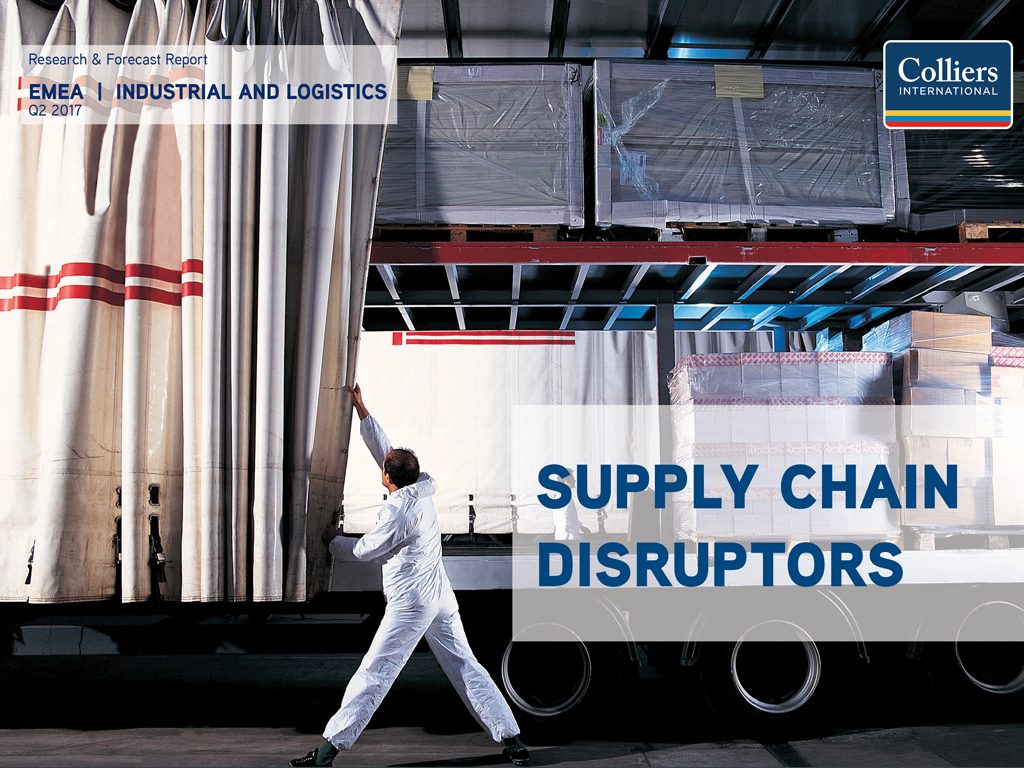Amazon and Alibaba to put parcels firms under pressure
28 / 06 / 2017

Parcels delivery, spurred on by e-commerce, is one of the fastest growing segments of a global annual logistics and transportation industry worth around $1trn, but technological developments could put existing players under severe pressure, said property firm Colliers International.
In Supply Chain Disruptors: Q2 2017 EMEA, published on the opening day of Transport and Logistics exhibition in Munich, it warned that global e-commerce players such as Amazon and Alibaba pose a potential threat to logistics providers as they expand their own networks.
If e-commerce keeps growing at the current rate, it could reach $5.4 trillion globally by 2020, more than the UK and France’s GDP combined, said the report. This would also create an ever growing need for warehousing space.
Global cross-border e-commerce in particular is on the rise, with 45% of on-line shoppers expected to buy products from other countries by 2020. This represents a four-fold increase in sales compared to 2014 and, thanks to e-commerce giants like Amazon and Alibaba, smaller merchants are increasingly involved in this global trade.
This will create an additional layer of demand for logistics space and requires a different approach to handle an increasingly diverse range of products and in smaller batches.
Amazon offers its marketplace sellers outsourced logistics and shipping and is seeking greater control of its delivery network to reduce cost and improve speed of deliveries. In the future it could start offering logistics services to third parties, potentially taking business from its logistics partners; Amazon accounts for an estimated 5% and 4% of UPS and DHL’s revenues, respectively.
Colliers’ associate director, EMEA research – industrial and logistics, Bruno Berretta, explained: “Unlike Amazon, Alibaba does not invest in logistics and warehousing directly and relies mostly on logistics partners to deliver goods. Although Alibaba does not pose a direct threat to delivery companies such as UPS, its use of technology is impacting on part of the supply chain.
"Alibaba’s ‘One Touch’ on-line platform offers small and medium merchants a series of export-related services including customs clearance and logistics, and now shipping, bypassing third parties previously involved in this process.”
Other supply chain operators like container shippers and freight forwarders also face challenges due to technology change and cyclical or structural factors, the report added.
The report argues that this market segment is under severe competitive pressure from technology, making middleman redundant and the challenges posed by e-commerce companies and logistics start-ups. Freight forwarders could respond to them by digtalising processes (such as freight booking and monitoring) to make them more efficient and transparent.














